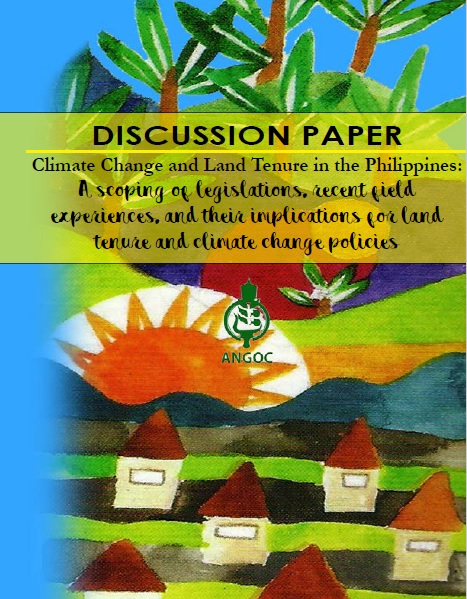
Human activity has accelerated the change in the earth’s climate over time. The impacts of this amplified change has negatively affected human settlements and land-use systems, threatening communities’ livelihoods, well-being, sense of security, and prosperity.
This discussion paper on Climate Change and Land Tenure in the Philippines: A scoping of legislations, recent field experiences, and their implications for land tenure and climate change policies, serves to highlight the linkages between land tenure and climate change in one of the most climate-vulnerable countries in the world. It summarizes key findings and recommendations from a review of laws on climate change and natural disasters in relation to tenure. Likewise, this paper incorporates the major issues and recommended actions from two case studies which demonstrate the relationships between the impacts of climate change, social and policy responses, and land tenure. The study areas include communities in the provinces of Eastern Samar, Misamis Oriental, and Bukidnon, that were ravaged by two of the strongest typhoons in recent history—Haiyan and Washi.
This publication was prepared by Antonio B. Quizon as a component of the project “Mainstreaming Voluntary Guidelines on Governance of Tenure (VGGT): Philippines,” implemented by ANGOC and supported by the Food and Agriculture Organization (FAO) of the United Nations.
The views and information provided in this document do not necessarily reflect the views and policies of FAO.
